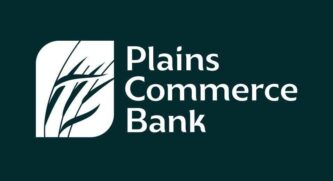The Top 8 Mistakes Homebuyers Make
Are you starting your house hunt? Our mortgage experts share 8 common mistakes they see homebuyers make.

How do lenders determine whether they’ll provide you a loan—as well as the interest rate at which it’s provided? Your FICO credit score tops the list of factors. What’s a good credit score when it comes to getting a mortgage, and how do you reach one?
At Plains Commerce Bank, our mortgage team is committed to answering that along with the rest of your questions. We’ve boiled them all down to four common credit score questions and your neighborhood mortgage experts weighed in on the following answers.
Knowing this definition provides valuable insight to your financial situation. Fair, Isaac and Company (known also as FICO) developed the most commonly used metric for credit scores. More than just a number, your FICO credit score ranks, on a scale of 300 to 850, how likely you are to pay back the money you borrow.
Higher credit scores indicate higher creditworthiness, signaling to lenders that you won’t be a repayment risk, increasing their likelihood of lending to you. Additionally, higher scores typically result in lower interest rates.
The specifics of how these factors affect your score remain secret to keep individuals from taking advantage of the formula. However, knowing what factors affect your score enables you to make smarter financial decisions and keep your score up.
Typically, you can qualify for a mortgage with a score higher than 660—depending on your financial situation. Make sure you’re purchasing a house you can afford and applying for a mortgage that fits your lifestyle. If you’re not sure which kind to apply for, check out types of mortgage loans.
Based on the criteria listed above, the most important factor is paying your bills on time. Most banks—Plains Commerce Bank included—offer online banking options and automatic payments. This allows you to schedule payments each month, ensuring they’re made on time and at your convenience.
Also, think twice before opening a new credit account or taking out a new loan. Nearly every retailer offers a credit card with perks and special deals. These can benefit your credit score when used correctly—just as easily as they can damage it. With more credit comes more urge to spend, and most retail cards come with a higher APR than fixed-rate and variable-rate cards. Similarly, having multiple loans (student, auto, etc.) indicates more debt and can lower your score. Careful spending and timely payments will help you build a positive credit history.
Buying a house is one of the biggest decisions you can make, and we know the process can be daunting. With our simplified, seven-step mortgage process, you can rest assured that you and your dream home are taken care of.
If you have any other questions, we’re happy to answer them. Visit one of our locations, contact us online, or call us at 1-877-227-7548.
While we offer this link for your convenience, please note that we are not responsible for the content provided by third-party websites. We encourage you to review the policies of any website prior to sharing personal information to ensure privacy and security. Any products or services accessed through this link are not provided by, endorsed or guaranteed by Plains Commerce Bank.
Continue Stay on plainscommerce.com